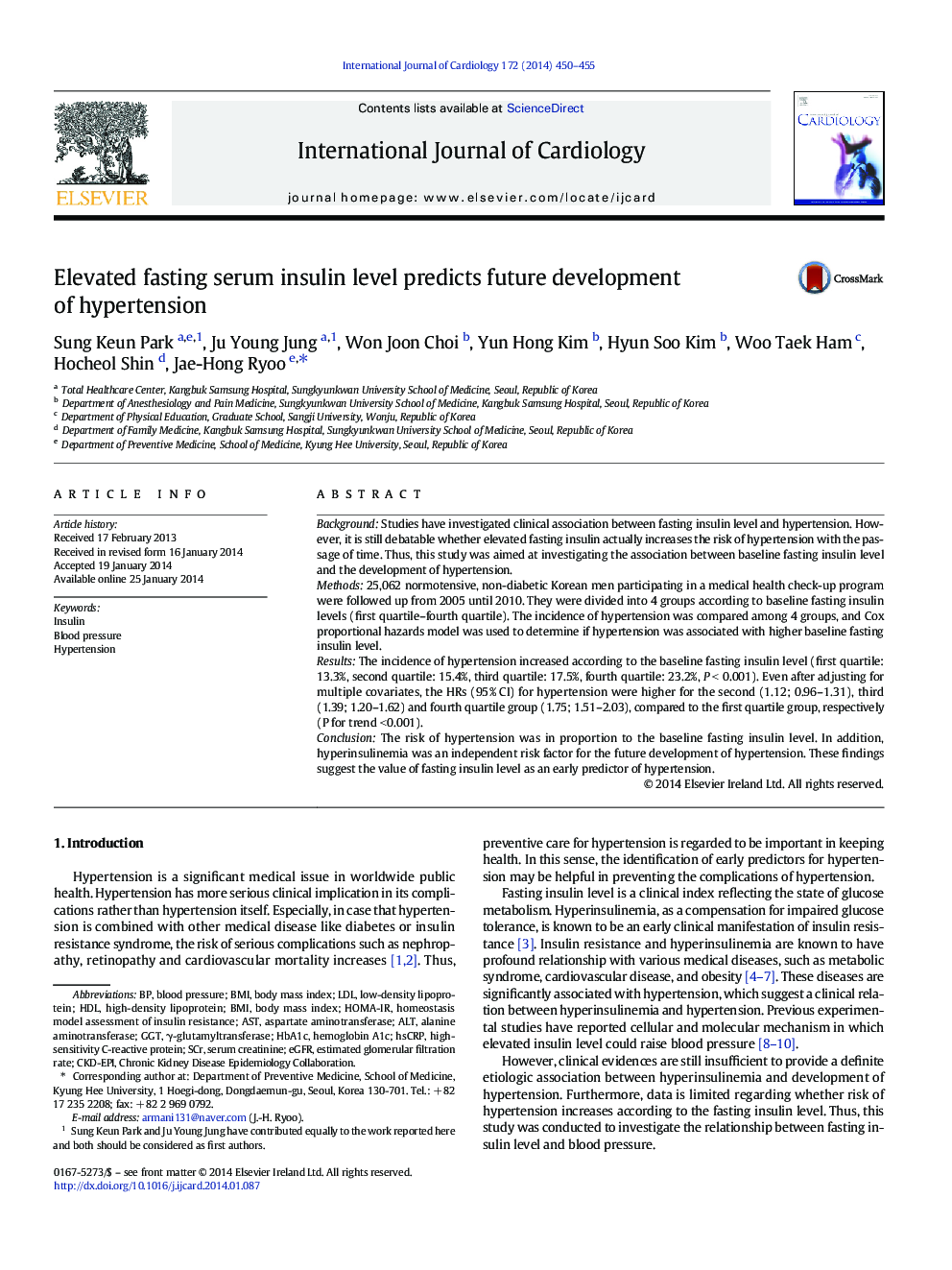| Article ID | Journal | Published Year | Pages | File Type |
|---|---|---|---|---|
| 5972039 | International Journal of Cardiology | 2014 | 6 Pages |
BackgroundStudies have investigated clinical association between fasting insulin level and hypertension. However, it is still debatable whether elevated fasting insulin actually increases the risk of hypertension with the passage of time. Thus, this study was aimed at investigating the association between baseline fasting insulin level and the development of hypertension.Methods25,062 normotensive, non-diabetic Korean men participating in a medical health check-up program were followed up from 2005 until 2010. They were divided into 4 groups according to baseline fasting insulin levels (first quartile-fourth quartile). The incidence of hypertension was compared among 4 groups, and Cox proportional hazards model was used to determine if hypertension was associated with higher baseline fasting insulin level.ResultsThe incidence of hypertension increased according to the baseline fasting insulin level (first quartile: 13.3%, second quartile: 15.4%, third quartile: 17.5%, fourth quartile: 23.2%, PÂ <Â 0.001). Even after adjusting for multiple covariates, the HRs (95% CI) for hypertension were higher for the second (1.12; 0.96-1.31), third (1.39; 1.20-1.62) and fourth quartile group (1.75; 1.51-2.03), compared to the first quartile group, respectively (P for trend <Â 0.001).ConclusionThe risk of hypertension was in proportion to the baseline fasting insulin level. In addition, hyperinsulinemia was an independent risk factor for the future development of hypertension. These findings suggest the value of fasting insulin level as an early predictor of hypertension.
